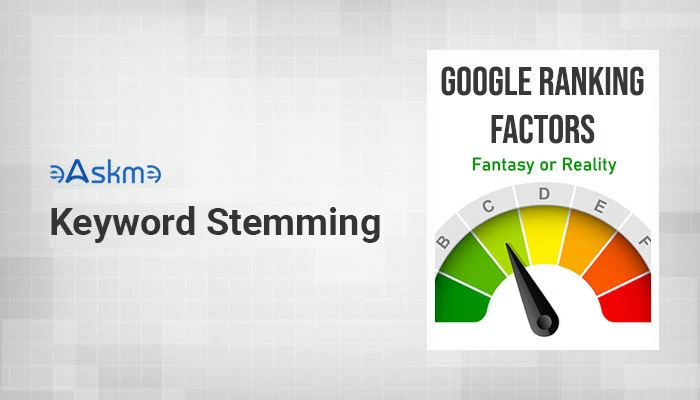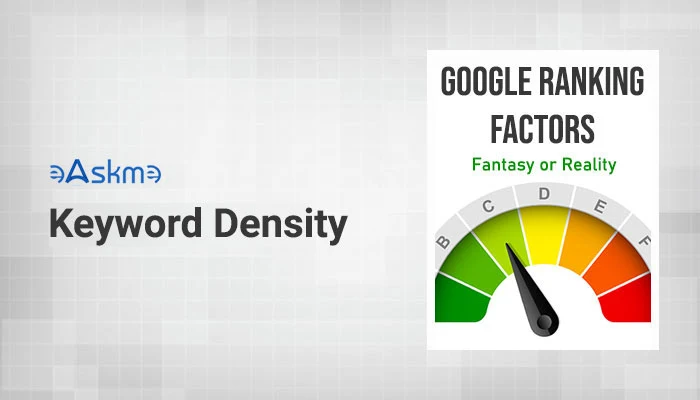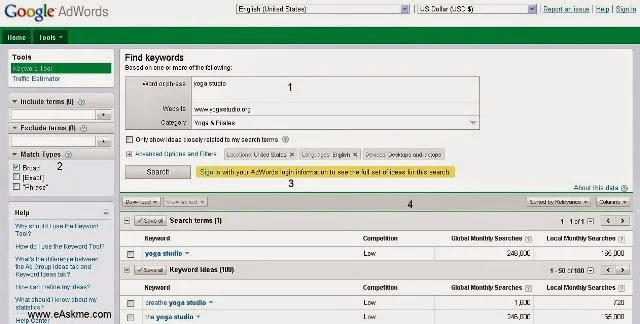Local keyword research can be defined as the process of identifying the specific phrases and terms that people in a particular geographic location use to find services or products like yours online.
It's a cornerstone of local SEO efforts, helping small businesses reach potential customers in their area.
Whether you’re a bakery in San Francisco or a plumber in Miami, understanding how to find local keywords ensures your business appears in relevant local search results.
But why is local keyword research important?
 |
| How to Do Local Keyword Research? |
Simply put, it helps your business gain visibility where it matters most — in front of local customers.
By focusing on keywords tied to your specific location, services you offer, and search intent, you can drive more organic traffic to your website, increase your local business ranking, and ultimately attract more customers.
Using keyword research apps like Google Keyword Planner and other local keyword research tools can make this process even more effective. In this guide, you’ll learn the basics of performing local keyword research to boost your local SEO success.
What are Explicit and Implicit Local Keywords?
When conducting local keyword research, it's essential to understand the two distinctive types of local keywords: explicit and implicit.
Both are vital to your local SEO strategy and help target customers effectively.
Explicit local keywords directly include a geographic location within the phrase.
For instance, “dentist in Chicago” or “best coffee shop near Boston” are explicit local keywords because they specifically mention the location. These keywords are easy to identify and often have clear local search intent, meaning people are actively looking for services in that area.
Contrarily, implicit local keywords don’t explicitly include any location but still indicate local intent.
For example, a person searching for “hair salon” or “pizza delivery” may expect results tailored to their current geographic location.
Search engines use this implicit intent to provide results relevant to the searcher's area, even without the location being part of the search term.
Understanding and finding explicit local keywords while recognizing the value of implicit ones ensures your local keyword research covers both types of queries.
By doing so, you align your content with local search intent, ensuring potential customers can discover your business in search results for both explicit and implicit queries.
Why Local Keyword Research is Important?
Local keyword research is fundamental for any business wanting to capture local customers and grow its presence online.
With well-researched local SEO keywords, your business has a higher chance of appearing in local search results, including the coveted Google Business Profile and local pack.
This visibility drives relevant traffic to your website and increases your chances of converting searchers into actual customers.
An effective local SEO strategy built on thorough local keyword research improves your local business ranking and helps your business stand out in a competitive market.
Whether you're targeting a single neighborhood or multiple locations, focusing on location-specific keywords ensures your efforts are relevant to your business and attract the right audience.
In short, local keyword research is the foundation of local SEO success, that helps businesses connect with potential customers and bring more traffic to their websites.
It’s a step you can’t afford to skip if you wish for your business to blossom online.
How to perform local keyword research
Performing local keyword research is indispensable for creating an effective local SEO strategy that drives significant traffic to your website.
By following the steps listed below, you can identify the most suitable local keywords to target, ensuring your business appears in search results for local searches.
Step 1: Define your target audience
Before jumping into researching keywords, start by defining your target audience.
Consider the specific location they’re in, the services you offer, and what they might be searching for online.
For example, if you run a landscaping business in Dallas, your audience might search for terms like “lawn care in Dallas” or “best landscapers near me.” Knowing your targeted audience’s needs and geographic location will help you match your local keyword strategy with their exact search intent.
Step 2: Use keyword research tools
Keyword research tools are invaluable when it comes to finding local keywords.
Platforms like Google Keyword Planner and Keyword Magic Tool can help you generate a list of keyword ideas relevant to your business.
Start by entering terms related to your services or business description, and filter results by geographic location to uncover location-specific keywords.
These tools also provide helpful keyword data, such as search volumes and keyword difficulty, allowing you to focus on high-potential terms.
For example, using Google Keyword Planner to search for “plumber” in Miami might reveal keyword ideas like “emergency plumber Miami” or “24-hour plumbing service Miami.” These insights are pivotal for creating a strong local SEO strategy.
Step 3: Analyze search volumes and difficulty
Once you have a complete list of potential keywords, it's time to analyze their keyword difficulty and search volumes.
Focus on finding keywords that have a relatively high search volume but are not overly competitive.
For example, “affordable electricians in Austin” might have a lower difficulty score than “electricians near me” while still being relevant to your business. Targeting these keywords helps you attract more organic traffic without competing against large businesses with significant SEO budgets.
Step 4: Look for competitors’ keywords
Examining your competitors’ keywords can provide helpful clues for your keyword strategy.
Use keyword research tools to pinpoint the terms competitors rank for and look for opportunities they might be missing.
For example, if a competitor ranks for “pet grooming Los Angeles,” you might discover untapped keywords like “mobile pet grooming Los Angeles.”
Step 5: Combine keyword modifiers and specific locations
Enhance your local keyword list by adding modifiers and specific locations.
Modifiers like “best,” “affordable,” or “near me” combined with geographic terms can make your keywords more precise.
For example, “best Italian restaurant in Chicago” or “affordable yoga classes near me” are strong local keywords that align with explicit local intent.
Step 6: Validate keywords with search results
Finally, validate your chosen keywords by reviewing search results.
Use Google search to see which businesses rank for your chosen keywords and analyze the content that appears in high positions.
This step ensures your chosen keywords align with actual local search intent and gives you an overview of the competition.
By following these steps, you can effectively conduct local keyword research that aligns with your business goals and target audience.
Incorporating tools, analyzing search volumes, and considering both explicit and implicit local intent will help you build a solid foundation for your local SEO strategy.
Creating an effective local SEO strategy
Once you’ve identified the right keywords through local keyword research, the next step is to incorporate them into a comprehensive local SEO strategy.
This involves optimizing your online presence and website to improve visibility in local search results.
1. Optimize your website with local SEO keywords
Use your target keywords strategically throughout your website. Focus on key areas like meta titles, meta descriptions, headers, and body content.
For example, if one of your keywords is “best dentist in Denver,” you can include it in your homepage title tag or a blog post about dental services in the area.
2. Create location-specific landing pages
Create a dedicated landing page for each geographic area, if your business serves multiple locations.
For example, a landscaping company serving Dallas and Fort Worth could have separate pages for “Lawn Care in Dallas” and “Landscaping Services in Fort Worth.” These pages should feature location keywords, business details, and customer testimonials relevant to that specific area.
3. Leverage Google Business Profile and local listings
Ensure your Google Business Profile is optimized with your target keywords, accurate business description, and location-specific details.
Consistency across all local business listings, such as Yelp and Bing Places, is critical for improving your local SEO success.
4. Encourage local reviews
Positive reviews are a significant factor in local SEO. Ask satisfied customers to leave reviews on platforms like Google or Yelp. Incorporating reviews that mention your keywords or services can boost your local business ranking.
By incorporating these tactics, you’ll create a local SEO strategy that not only aligns with your local keyword research but also drives more traffic to your website and attracts more customers.
Tracking local keyword rankings and adjusting your strategy
Tracking your local keyword rankings is crucial for measuring the success of your efforts and ensuring your local SEO strategy stays on track.
Use keyword research tools to monitor how your target keywords perform in local search results.
Tools like Google Keyword Planner and third-party platforms (like Localo) can help you track local keyword rankings and identify any changes in search volume or competition.
If some keywords aren’t performing as expected, tweak your strategy accordingly. For example:
- Focus on keywords with less competition but high local search volumes.
- Refine your content to better align with local search intent.
- Analyze what competitors are doing differently and adapt accordingly.
Regularly reviewing your rankings and keyword data ensures your local SEO efforts remain effective and relevant to your business goals.
Conclusion: The value of local SEO keyword research
Local keyword research is a fundamental step in achieving local SEO success.
By understanding your target audience, using keyword research tools, and focusing on both explicit and implicit local keywords, you can ensure your local businesses appear in relevant search results.
This drives more organic traffic, connects you with potential customers, and ultimately leads to more sales.
The process of local keyword research doesn’t stop after finding the best local keywords.
Continually monitor search volumes, keyword performance, and competitors to refine your strategy and maintain a strong local presence.
With a solid foundation in local keyword research and a clear focus on local search intent, your business can stay ahead of the competition and grow in its specific location.
By following these steps and staying proactive, you’ll set your business up for long-term success in the ever-changing landscape of local SEO.
Other Helpful Guides:

























